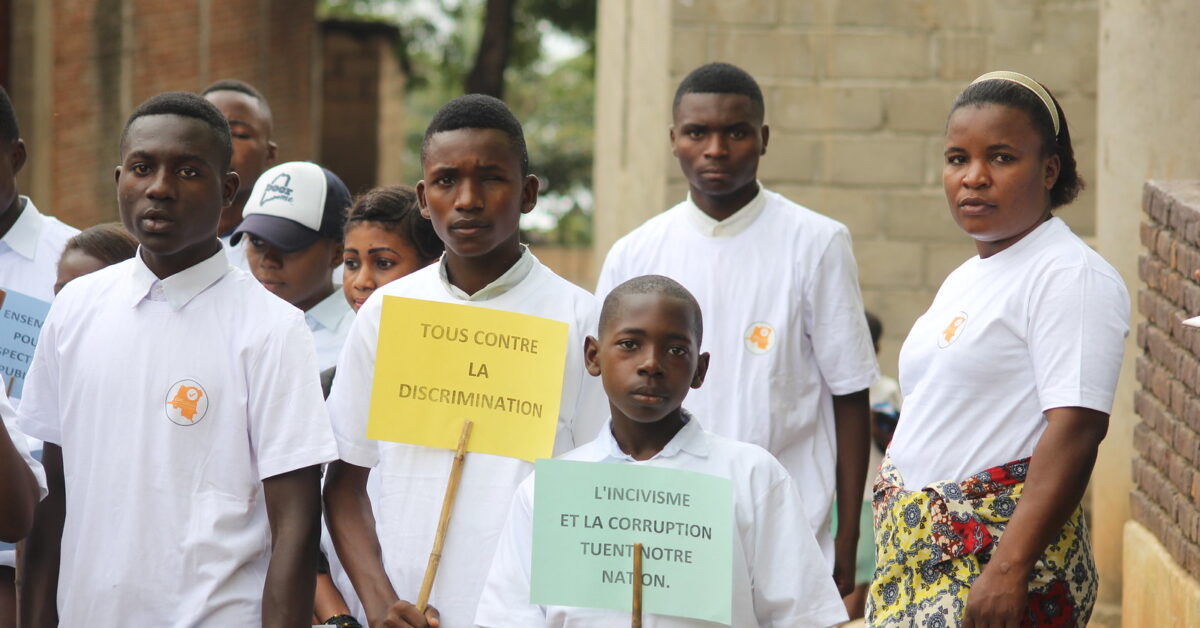Addressing stigma and discrimination in Education
Taking action against stigma and discrimination is essential for achieving Sustainable Development Goals. Acts of discrimination in all its form deny people’s rights to information, to appropriate education and health services, and to participate meaningfully in community actions.
In Democratic Republic of the Congo as in other post-conflict countries, fear of stigmatization and discrimination discourages children from parent living with HIV, epileptic children, ex-child soldier, child with psychological problems, children born of a raped mother, pregnant schoolchildren, raped schoolchildren, and other discriminate groups seeking information and participate in community actions. We will not achieve Universal Access to Education and Health without reducing stigma and discrimination.
At CERC, we are tackling stigma and discrimination through a range of activities such as:
- Promote CERC programming against stigma and discrimination.
- Creating an awareness of what stigma is and the community benefits of reducing it.
- Promote awareness and action among other stakeholders: local leaders, Parents’ committees, School management bodies and other local CSOs;
- Engage religious congregations to initiate awareness raising and education activities through appropriate sermons to raise the awareness of the faithful in this regard.
- Integrate the notion of stigma into Integrity Clubs, and address the topic not only with students, but also with parent members and teachers at the meetings.
- Regularly integrate topics on discrimination in radio broadcasts, through dedicated programs, guests of the day, and voluntary testimonies of victims.
- Promote the dissemination and repetition of the anti-discrimination message on the radio/TV through short messages, advertisements, and targeted jingles.
- Providing the skills to challenge stigma and change behavior and advocate for and support meaningful participation of children from parent living with HIV, epileptic children, child with psychological problems, children born of a raped mother, pregnant schoolchildren, raped schoolchildren, and other discriminate groups in decision-making, policymaking and other processes related to the education response.
- Engage a range of local leaders, Parents’ committees and School management bodies, Government ministries, including Social Affairs, Health and Education, in discussions. Additionally, national human rights commissions, Parliamentary Committees, and Donors have important roles to play to end discrimination in education sector.
We are greatly confident that these activities will have a positive effect in increasing the education and participation rate of stigmatized and discriminated children thus enabling them to advocate for the problems that affect their lives.
